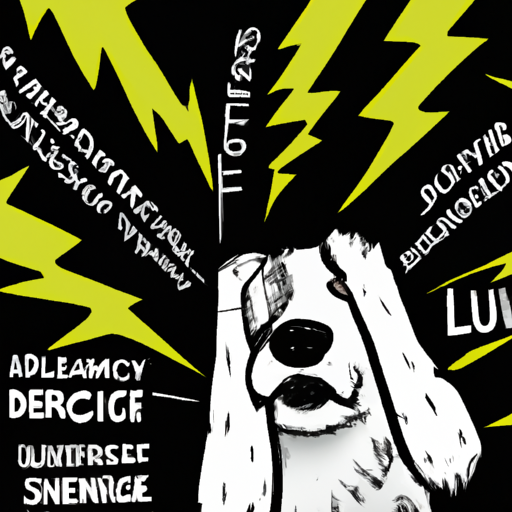As a caregiver, you undoubtedly have a deep connection with your dog. You know their favorite treats, their preferred sleeping spot, and their unique personality quirks. But do you know the sounds that your dog might find unpleasant or even distressing? This guide will help you better understand your pup’s sensory experience and provide strategies to reduce their exposure to sounds they might hate.
Understanding Dogs’ Hearing Capabilities
Dogs have an extraordinary sense of hearing. It’s not just that they can hear sounds four times farther away than humans; they also perceive frequencies almost twice that of human ears. This means they can hear sounds we can’t, and noises we think are normal could be distressing to them.
High-Frequency Sounds
Just like us, dogs are sensitive to high-frequency sounds. Some everyday items that emit high-frequency noises include:
- Televisions
- Computer monitors
- Certain light bulbs
- Some toys
Low-frequency Sounds
While dogs are more sensitive to high frequencies, low-frequency sounds can also cause discomfort. Examples of low-frequency noises include:
- Thunder
- Construction noises
- Traffic sounds
Common Sounds That Dogs Generally Dislike
Not all dogs will react the same way to every sound, but here are some common noises that dogs typically find unpleasant.
Fireworks
For many dogs, the loud, unpredictable noise of fireworks can be incredibly distressing.
Vacuum Cleaners
The loud, sudden noise of a vacuum cleaner can make dogs anxious or scared.
Thunderstorms
The low rumble of a thunderstorm is another common sound that dogs tend to dislike.
High-Pitched Whistles
Dogs can hear frequencies up to 45 kHz, well beyond human range. This makes high-pitch dog whistles, intended to get their attention, potentially unpleasant for them.
Construction Noises
The sudden, loud noises from a construction site, like the banging of a hammer or the whirring of a drill, can be distressing for dogs.
How to Help Your Dog Cope with Unpleasant Sounds
As a caregiver, there are several strategies that can help your dog cope with sounds they dislike.
Create a Safe Space
Find a quiet, comfortable spot in your home where your dog can retreat when they’re feeling stressed by noise.
Use White Noise
A fan, air conditioner, or white noise machine can help mask distressing sounds.
Consider Training or Therapy
Working with a professional dog trainer or behaviorist can help your dog learn to cope with unpleasant sounds.
Use Medication
In severe cases, medication prescribed by a vet can help manage your dog’s anxiety.
FAQ
Q: Why does my dog hate the vacuum cleaner?
A: Vacuum cleaners produce a loud, sudden noise and vibrations that can be distressing for dogs.
Q: My dog is terrified of thunderstorms. What can I do to help?
A: Creating a quiet, comfortable space for your dog to retreat to during a storm can help. You could also consider using white noise to mask the sound of the storm, or speak with a vet about medication to help manage your dog’s anxiety.
Q: Are there any toys that are particularly bad for dogs’ hearing?
A: Toys that emit high-frequency sounds can be unpleasant for dogs, so it’s best to avoid these.
Q: What about dog whistles? Are they bad for my dog’s hearing?
A: While dog whistles are designed to get your dog’s attention, they emit high-frequency sounds that can be distressing for dogs.
Q: Can dogs become deaf from exposure to loud noises?
A: Yes, prolonged exposure to loud noises can damage a dog’s hearing, just like it can in humans.
Your dog’s hearing is a key part of their sensory world, and understanding it can help you provide a more comfortable, stress-free environment for them. By being mindful of the sounds that your dog might find distressing, and taking steps to help them cope, you can enhance their quality of life and strengthen the bond between you.



